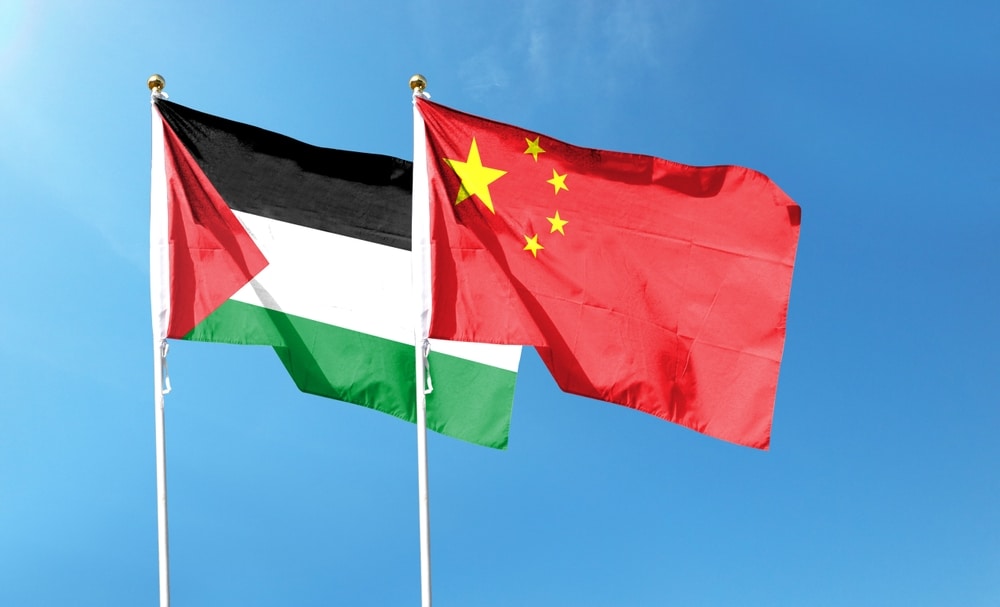President of the State of Palestine
Mahmoud Abbas, the President of the State of Palestine, has publicly expressed support for China’s annexation of Taiwan. Analysts believe this support emphasizes the State of Palestine’s recognition of Chinese sovereignty over Taiwan.
According to them, this move is a deliberate display of anti-USA sentiment, marking a significant shift in the political landscape of this region.
China’s Relationship With Israel Changes
This development follows China’s change from its historically balanced stance on the Israeli-Palestinian conflict. Since the inception of diplomatic relations with Israel in 1992, China has maintained ties with both Israel and Palestine.
Despite condemning Israel’s settlement-building in occupied Palestinian territories, China had continued substantial economic relations with Israel. However, this economic relationship changed dramatically following the war in Gaza between Israel and Hamas.
Notably, China refused to explicitly condemn Hamas, refraining from labeling it a terrorist organization. A week after the Hamas attack on October 7, when Western supporters were still backing Israel’s military campaign, Chinese officials criticized Israel’s airstrikes as “beyond self-defense.”
It also condemned the attacks as “collective punishment,” with several Chinese media outlets blaming the US for the conflict.
This Shift In China’s Stance
This shift in China’s stance surprised observers globally, especially Israel. Furthermore, Beijing has firmly endorsed the establishment of a Palestinian state as the only sustainable resolution to the Israeli-Palestinian conflict.
Israel responded with “deep disappointment,” objecting to China’s insistence on a two-state solution. Analysts suggest that China’s stance could be an attempt to appeal to audiences in the Global South, where public sentiment generally favors the Palestinian cause.
While this could be a reason, and despite concerns for the Palestinian cause, it is surprising that China has deepened policy ties with the Middle East, including Sino-Israeli nations. The recent explicit condemnations and the emphasis on a two-state solution is a departure from China’s past approach to Israeli military campaigns in Gaza and southern Lebanon.
Blinken Advocates For The Palestinian State
Meanwhile, the US Secretary of State Antony Blinken recently met with Palestinian Authority President Mahmoud Abbas in Ramallah. Per reports, the meeting discussed governance reforms and tangible steps towards establishing a Palestinian state.
During the meeting, Blinken said that the White House would support “tangible steps” towards a Palestinian state. He emphasized the long-standing US position that such a state must coexist with Israel in peace and security. State Department spokesman Matthew Miller also reiterated Blinken.
Ongoing Tensions And Regional Dynamics
The discussions also touched upon the increased unrest in the West Bank, marked by a wave of terror attacks on Israelis and heightened Israeli military operations against Hamas and other terror groups. He further said the US desires to see a revamped Palestinian Authority and an eventual takeover of the Gaza Strip once this conflict is over.
Challenges And Prospects
Blinken’s visit to the region is part of a week-long trip to calm tensions across the Middle East. He has engaged with leaders from Qatar, Jordan, the United Arab Emirates, Saudi Arabia, and Turkey, securing their openness to contribute to postwar plans in return for progress towards a Palestinian state.
The diplomatic push continues with meetings scheduled in Jordan and Egypt, both traditional mediators in the Israeli-Palestine conflict. Blinken’s unexpected visit to Bahrain spotlights the urgency of preventing a regional escalation of the Israel-Hamas war in Gaza.
Furthermore, Blinken called for increased humanitarian aid to Gaza and urged Israel to remove any obstacles hindering the distribution of essential supplies.

